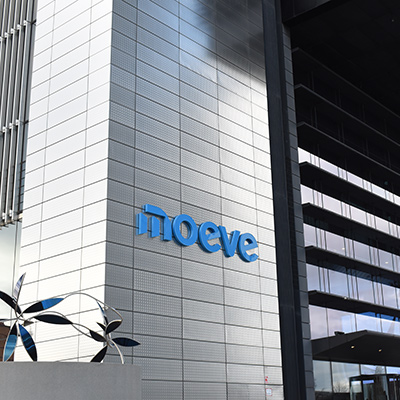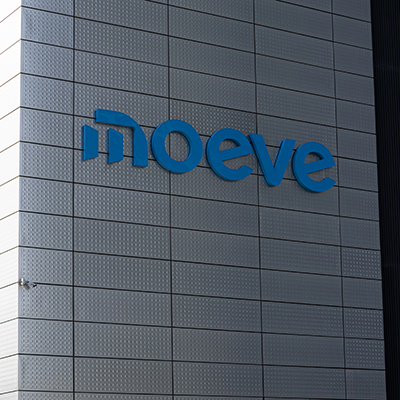- The purpose of the #aliadosdelosODS (SDGs Allies) campaign is to act as a loudspeaker to achieve a multiplier effect so the 2030 agenda is known and worked
- Corporate management based on SDGs creates new business opportunities, improves stakeholder relations, and promotes innovation
- Cepsa has identified the following SDGs as priorities: affordable and clean energy (SDG 7); decent work and economic growth (SDG 8); industry, innovation, and infrastructure (SDG 9); responsible consumption and production (SDG 12); climate action (SDG 13); and, peace, justice and strong institutions (SDG 16)
Cepsa has joined the campaign #aliadosdelosODS to raise awareness of the 17 Sustainable Development Goals (SDGs), in cooperation with the Spanish Global Compact Network, an initiative to which it belongs, on the fourth anniversary of the approval of the 2030 Agenda. Based on its own commitment to act with the SDGs, the aim is to contribute to act as a loudspeaker and achieve a multiplier effect so they are known and worked in the political, social, and business spheres.
In 2005, Cepsa joined the UN Global Compact initiative, the largest sustainability initiative worldwide. In addition to its commitment to promoting the ten principles, the company has worked since the approval of the 2030 Agenda in 2015 to align its corporate management with the SDGs, where it is discovering new business opportunities, improving its relationship with its stakeholders, and promoting innovation.
Cepsa's commitment to the SDGs has come about with the approval of the priority SDGs by the company's Senior Management. This has led Cepsa to conclude that the company's efforts to contribute to the 2030 Agenda should be directed towards those SDGs most closely linked to its activity as well as to its stakeholders. Cepsa has identified the following SDGs as priorities: affordable and clean energy (SDG 7); decent work and economic growth (SDG 8); industry, innovation, and infrastructure (SDG 9); responsible consumption and production (SDG 12); climate action (SDG 13); and, peace, justice and strong institutions (SDG 16).
Cepsa's contribution to the SDGs
Under the business diversification process currently being carried out by Cepsa, the company is engaged in the start-up of its first wind farm in Jerez de la Frontera, which will produce energy equivalent to the consumption of 15,000 homes for one year and will also prevent the emission of 80,000 tons/year of CO2. Through this project, this energy company contributes to SDG 7, which focuses on affordable and clean energy.
Moreover, the company is defining a carbon strategy that will allow it to establish a road map for a low-carbon model thanks to a long-term CO2 reduction and emission intensity goal, thus continuing its commitment to climate action (SDG 13).
Cepsa strives to continuously improve its production processes, an example of which are the different accreditations it has earned in terms of sustainability, such as the Environmental Product Declaration Certificate (EPD) for its LAB business line (raw material for the manufacture of biodegradable detergents). In fact, in 2018 the company became the only global company to obtain this certification in this sector. Through different measures, Cepsa is able to minimize its impact on the environment, thus contributing to SDG 12: responsible consumption and production.
By means of different technologies and tools of 'industry 4.0', the company is able to be more efficient in its production processes and so manage to reduce the impact of its operations, striving for the objectives of SDG 9, focused on industry, innovation and infrastructure. The company’s commitment to offering family support and flexibility practices is noteworthy in the area of working conditions that Cepsa offers to its employees. The company is certified as a Family Responsible Company (FRC) and currently has more than 100 family support measures in place. With these measures, Cepsa seeks to promote decent work and economic growth, as expressed in SDG 8.
As a result of its commitment to the best ethical and compliance practices, in 2018 Cepsa became the only company in the energy sector in Spain -and one of the first internationally- to obtain the ISO 37001 certification, which certifies the measures implemented in its anti-bribery management system. These types of certifications reflect Cepsa's commitment to SDG 16, which advocates for peace, justice, and community support institutions.
According to Pedro Miró, Cepsa's CEO: “In order to be competitive in global markets, we have to understand and adapt to the changes that society experiences and requires. Committing to these Sustainable Development Goals allows us to advance in concrete goals to respond to new social demands and join efforts in the business world so that we can be part of the solution to the great challenges faced by humanity.”
The #aliadosdelosODS initiative is developed to be a communication campaign coinciding with the fourth anniversary of the adoption of the 2030 Agenda on 25 September 2015. With these actions, the Spanish Global Compact Network and its member organizations also seek to contribute to the objective set by the Office of the President for the 2030 Agenda that all citizens should be aware of the SDGs by the year 2020.
Boosting the contribution of businesses to sustainable development
Four years ago, the 193 participating states of the United Nations General Assembly, including Spain, unanimously approved the 2030 Agenda with its 17 Sustainable Development Goals (SDGs). "Leave no-one behind" is the backbone of the agreement. The SDGs aim to end poverty and hunger, reduce inequalities, and address urgent challenges such as climate change.
To attain such an ambitious Agenda, it was agreed that the participation of all parties was necessary, including governments, businesses, civil society, and citizens from all over the world. Its strength comes from the universal nature of the agreement and the aspirations in its 169 targets. Meeting the SDGs therefore requires the combined collaboration of the public sector, businesses, investors, and society at large.
For the first time, the United Nations recognizes businesses as a key agent in the achievement of its Global Goals: "Private entrepreneurship, investment, and innovation are the great engines of productivity, including economic growth and job creation. We urge all companies to use innovation and creativity to solve problems related to sustainable development," declared the international organization.
The Spanish Global Compact Network
The United Nations Global Compact (UN Global Compact) is an international initiative whose mission is to generate an international movement of sustainable enterprises to create the world we want. Its strength lies in its unparalleled ability to bring companies together with other actors working to promote sustainable development: governments, civil society, and the United Nations. With more than 12,500 affiliated members in more than 160 countries, it is the largest corporate social responsibility initiative in the world. It also has a UN mandate to promote the Sustainable Development Goals in the private sector.
The United Nations Global Compact has been operating in Spain through the Spanish Network since 2004. It is the local network with the most signatories and is positioned at the helm of the different UN Global Compact networks worldwide. It currently has 1,542 affiliated entities, of which 669 are members.
For more information: https://www.cepsa.com/en/sustainability/cepsa%E2%80%93commitment


